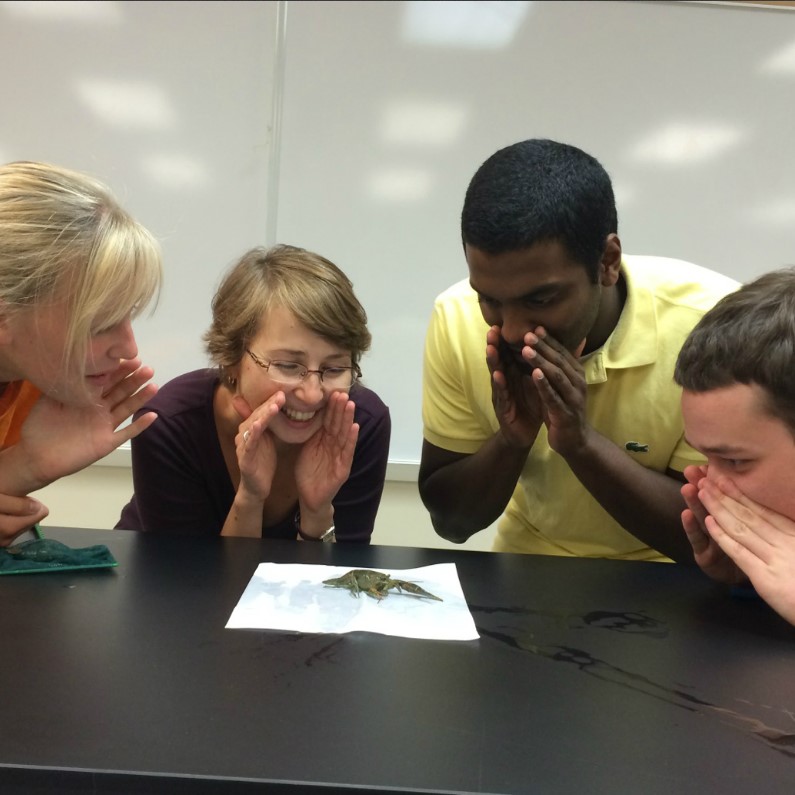Neuroscience Faculty Research

Dr. Anya Goldina's Lab
Behavioral endocrinology lab
The ability to survive in one’s environment is highly dependent on the animal’s ability to identify social status, mating willingness, and competition state of other individuals within its social group. Animals use multiple sources of information to learn about their environment and to assess their own status within a social hierarchy. In my lab, we use local crayfish species to understand how social environment and social experience mediate social status establishment. Crayfish communicate by releasing chemical signals into the water, which communicate information about individual molt status, sex, social status, and species identity. We are particularly interested in understanding how social experience combines with the chemical signals that crayfish perceive from other individuals around them to modify their behavior. We are also comparing chemical communication in native and invasive crayfish species in the local watersheds. Current projects in the lab focus on examining species-specific responses to chemical signals produced by invasive and native crustacean species in different social contexts. We hope to apply our findings in developing more effective methods for preventing and eradicating invasive crustaceans.
Current projects include:
- Discrimination behavior of invasive crayfish species to diverse chemical signals
- Assessing the relationship between chemical communication and social experience
- The effect of social status on serotonin sensitivity
- Role of communication networks in social experience and social status stability

